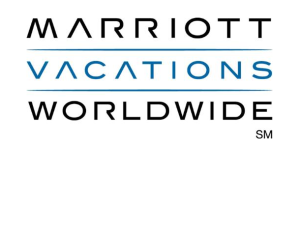Sell Your Timeshare … Buy Pumpkin Latte
Monday, November 12, 2012

The following article looks at some of today’s challenges when it comes to marketing timeshares and timeshare resales. Much about the decision to sell your timeshare or to buy a timeshare is surprisingly similar to the decisions you make and the sales strategies behind the last cup of pumpkin latte you ordered. This article, “Why the future of timeshare marketing is not an either/or option,” was published in The Resort Trades, November 2012. It is republished here with their permission.
Why the future of timeshare marketing is not an either/or option
When it comes to timeshare sales, resales and rentals, the secondary market and those who represent it, tend to be outspoken disciples of the power of Internet marketing. New York Times best-selling author Chris Anderson, in his book titled, “The Long Tail,” (© 2008, Hyperion) examines the power of the Internet, saying, “Now, in a new era of networked consumers and digital everything, the economics of … distribution are changing radically as the Internet absorbs each industry it touches, becoming store, theater, and broadcaster at a fraction of the traditional cost.”
Anderson’s message feels like a perfect fit when discussing timeshare sales and marketing. But is the Internet really absorbing every industry? Or are some companies and some types of products driven by the nature of their business to find ways to use the Internet to enhance the marketing they were already doing well? The successful Seattle-based coffeehouse Starbucks might be a perfect example of achieving an optimum marketing balance that incorporates the best of all strategies.
Getting the coffee into the cup
You can recharge your Starbucks card online. You can order the beans, buy the Starbucks branded K-cups, and probably, if it mattered to you, even get someone to write your name on a paper cup and ship it to you via FedEx. But the one thing you can’t do online at Starbucks is get someone to put a steaming hot cup of pumpkin spice latte (or any other favorite flavor) into your hands.
In a world in which Internet marketing and sales are claiming more and more territory every day, Starbucks, because of the type of product it sells, has no choice but to carve out a very different kind of space. Starbucks saw its role, identified its perfect place and then claimed it. Starbucks became your neighborhood coffee shop and in the process set the standard to which its competitors aspire.
Starbucks has taught an entire generation that the specialist serving coffee isn’t a clerk, server or sales associate; that person is a barista and when you go to your favorite Starbucks, the barista will know your name and remember how you like your coffee. As a company, Starbucks clearly has lived up to its corporate mission of inspiring and nurturing the human spirit – one person, one cup and one neighborhood at a time.
Achieving balance
Howard Schultz is the visionary who grew the Starbucks empire initially from a coffee bean sales store into the mega giant it is today, and later regrew it after the company’s rapid growth plan collided head-on with the faltering global economy of 2008 and the recessionary years that have followed. In his book, “Onward,” (© 2011 Rodale) Schultz writes, “I still remember what it was like when we started building the company. Every day we were fighting for survival, doing whatever we had to do. We rolled up our sleeves and left our egos at the door. Every small gesture mattered, and so much of what Starbucks achieved was because of partners and the culture they fostered.”
Many of the most successful names in timeshare and vacation ownership could tell a similar story. Good marketing and a powerful brand identity may have drawn owners, guests and prospective buyers to resorts initially, but over and over again it is the human touch – those critical small gestures made by the employees working on the front lines – that have been responsible for a resort’s survival and success.
Timeshare sales and rentals, are in many ways much like that steaming hot cup of coffee. A first taste is logically often required to initiate the relationship with the buyer. That first taste can come as a mini vacation or a site visit. But it can also happen during a hotel stay at a mixed use resort or a business trip to one of the resort’s other branded properties that may not include timeshare at all. A first taste for timesharing can even be gained vicariously through another timeshare owner so passionately sharing his or her enthusiasm for the product that the desire to own is contagiously caught rather than instigated by a sales professional. And yes, it can even be accomplished for many buyers via their online experience, a pattern that is now more prevalent in timeshare sales than the traditional resort tour.
The power of the Internet is the most pervasive, growing, and dynamic marketing medium ever conceived. Internet engagement enables businesses to permeate niche markets that previously could not have been sold to in a cost-effective way. In so doing, the Internet empowers businesses to effectively sell less of more and to do so in many cases by staggering proportions.
But niche marketing, as Chris Anderson explains, is not about replacing traditional ways of marketing, relationship building, and consumer engagement; instead it is about sharing the stage. Starbucks has more than 30 million “likes” on Facebook and offers a hub of Internet connectivity in every one of its storefront locations. Starbucks uses the part of Internet marketing, online sales, and social media engagement that works for its product and then capitalizes on the company’s unique proficiency to deliver the human touch in an impersonal ecommerce-driven world.
As an Internet marketing guy in the timeshare resales business, I understand the idea of selling less of more and find it extremely exciting. But I am also part of an industry that sells a product as appealing, as personal and as restorative to the soul, as is a fresh brewed cup of coffee. Through whatever ways we deliver the all-important small gesture and human touch, it is important to vacation ownership that those qualities are never lost. Timeshare sales and timeshare resales professionals must be the baristas of vacation ownership. When it comes to building and growing the next generation of timeshare, the answer is not either traditional marketing or Internet marketing; it’s all of the above delivered in the most personable and meaningful ways we can accomplish.


